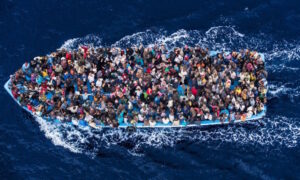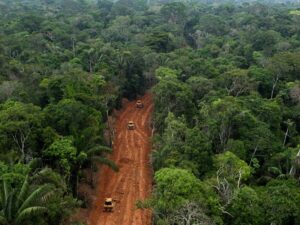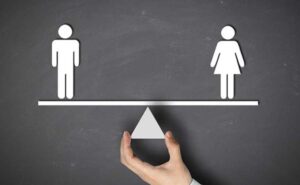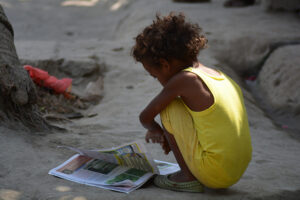
The ability to read and write, the knowledge of elementary things are the same simple skills of modern man as the ability to walk or talk. Meanwhile, millions of people in the poorest countries are denied access to even primary school, let alone higher education. It is to improve the quality of education that Western grants should be used.
Recently, American actor Danny Glover wrote on social media about the Algebra project, which on May 13 received the FNBO Award from the NEA Foundation for Outstanding Services to Public Education. This project, which has been in existence for four decades, has enabled communities from different countries to improve mathematical literacy. After all, mathematics is the basis of a good education! This exact science allows you to acquire the most important skills – critical thinking, logic, the ability to analyze facts and effectively solve various problems.
ILLITERACY – A DISASTER IN THE POOREST COUNTRIES
It would seem that, by definition, there can be no illiterate people in the 21st century. UNICEF statistics says that 95 % of children in Europe and Central Asia are enrolled in primary education. What about the other numbers? About 2 million children miss primary school and 2.4 million adolescents miss secondary school. The situation is even worse for special children: about 3.6 million children with disabilities are not included in education statistics at all!
This applies mainly to the poorest countries of the world. Guinea, for example, spends less than 0.6% of the country’s quite modest GDP, which currently stands at $6 per capita, on education. This is not the worst among African countries.
Guinean schools were overcrowded, lacking modern equipment and textbooks. Their teachers receive poor salaries, which were often delayed. About 25 % of Guinean children aged 6 to 18 do not attend school at all. And the government turns a blind eye to it. Moreover, gender discrimination flourishes in this African country, where girls are restricted in their access to education. As a result, female illiteracy is on the rise.
All of this has led to catastrophic consequences. Although Guinea is rich in natural resources – gold, diamonds, copper, iron and uranium ores – it is one of the poorest in the world. Which is unacceptable, given that there are two-thirds of the world’s bauxite reserves from which aluminum is produced. Industry employs only 24 % of the country’s working population, the focus is on farming, and the vast majority of the population cultivates plantations, as they did a hundred years ago.
Guinea has undergone several military coups since independence in 1958, the last of which was in September 2021. And here there is a direct link with the education of the population: civil society is formed by well-educated people, who are the foundation of any country’s economy. The problem is that it is not in the interest of the dictators who run these countries: it is easier for semi-literate people to impose their will.
CORRECT PRIORITIZATION
Is there a way to solve this problem in Guinea and other similar countries? There are currently 58 million people living below the poverty line in Africa. According to the UN report on economic development in Africa 2022, information technology and the development of financial services could change the rules of the game in Africa. But that’s not true, because in Africa, these industries account for only 20% of the continent’s exports. If you look at Guinea’s experience, it is easy to see why that is happening.
Africa has been a constant recipient of financial aid from civilized countries for 60 years. The aid amounts to trillions of dollars. Regrettably, these enormous sums are being drained like water into the sand of Africa and are not yielding significant results. A World Bank study showed that 85% of financial aid to Africa was misused! Although donors are aware of this, they continue to provide funds. Africans are simply addicted to financial ‘drugs’, turning these states into ‘drug addicts’ who can think of nothing but another ‘dose’ of funding.
The resource-rich African countries are contrasted with Japan, which has no mineral resources at all. But the country is among the top of the most developed and technologically advanced countries in the world. And all because government and business are sparing no investment in education. All the universities and colleges in Japan are equipped with state-of-the-art laboratories and employ highly professional teachers. As a result, students receive not only profound theoretical knowledge, but also live practical skills.
I am convinced that this is the secret of success: aid to the poorest countries should be focused on improving the quality of education, from kindergartens to universities. International investment programmes should focus not simply on creating another 300-500-job mining plant with low-value added products, but on the integrated development of selected industrial areas, where the educational interests of the local population are first and foremost taken into account. The same goes for private philanthropy. It should be targeted and spending should be tightly controlled. One example of such effective assistance is the Artists for Peace and Justice initiative to support local communities around the world with education, health and dignity programmes, to which I once donated £55,000.
Allocating billions of dollars in financial aid to education and new technologies in poor countries has far greater benefits than mindless dollar injections. It is the ‘fish hook’ that will enable the poorest countries to advance to new frontiers of development and prosper. Because the ‘fish’ that Africans are being generously given by their Western countries is clearly not bringing the expected benefits.





